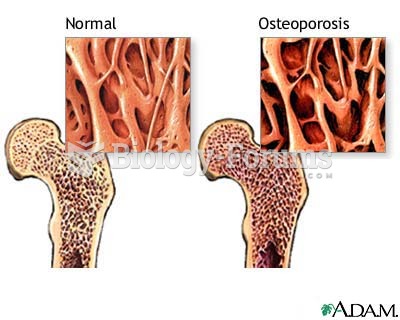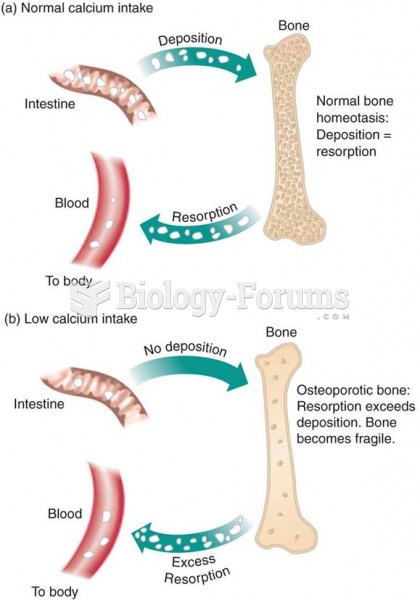This topic contains a solution. Click here to go to the answer
|
|
|
Did you know?
Immunoglobulin injections may give short-term protection against, or reduce severity of certain diseases. They help people who have an inherited problem making their own antibodies, or those who are having certain types of cancer treatments.
Did you know?
Approximately one in four people diagnosed with diabetes will develop foot problems. Of these, about one-third will require lower extremity amputation.
Did you know?
Vaccines prevent between 2.5 and 4 million deaths every year.
Did you know?
The average office desk has 400 times more bacteria on it than a toilet.
Did you know?
The FDA recognizes 118 routes of administration.







